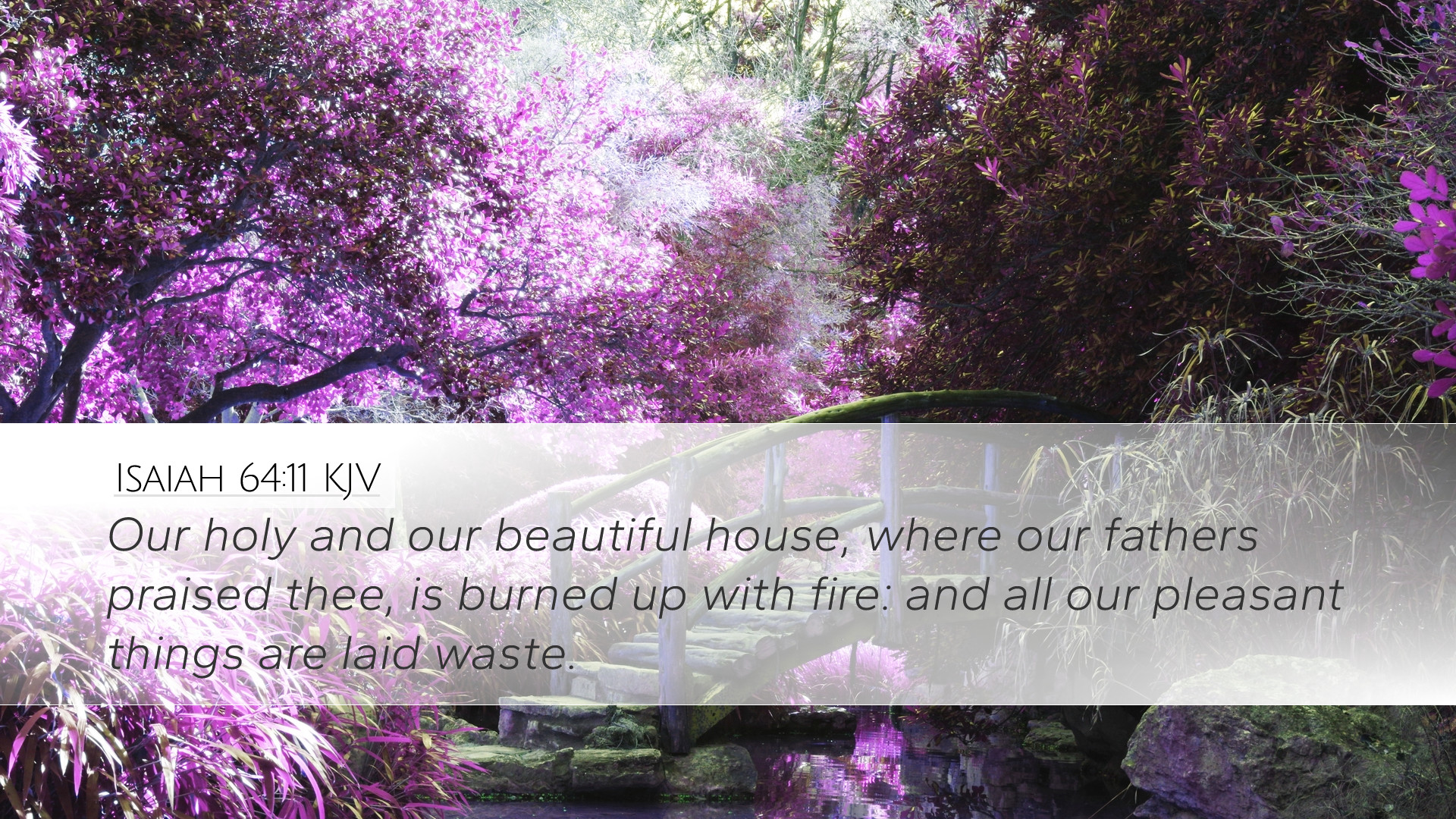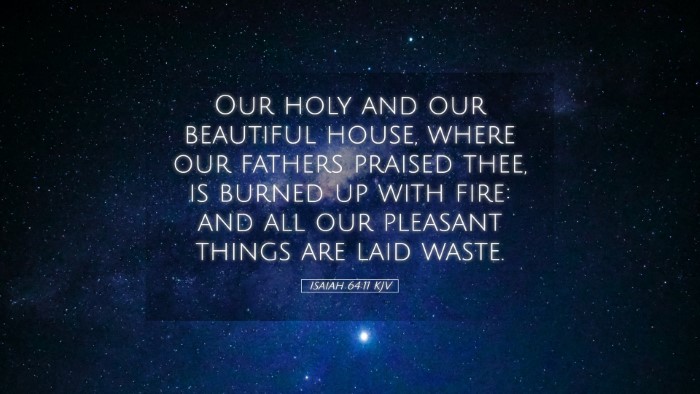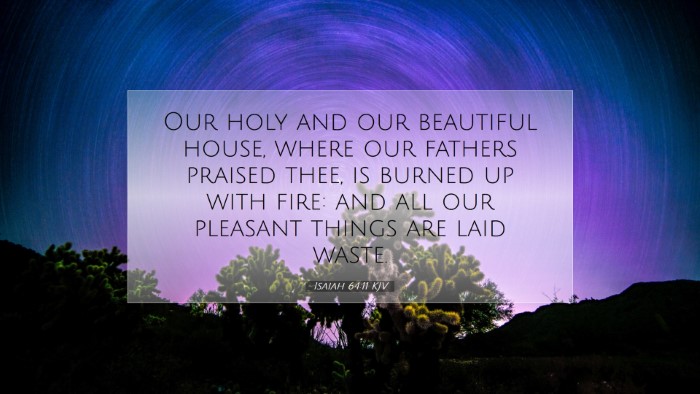Commentary on Isaiah 64:11
Isaiah 64:11 states:
"Our holy and our beautiful house, where our fathers praised thee, is burned up with fire: and all our pleasant things are laid waste."
Introduction
Isaiah 64:11 articulates a profound yearning and lamentation concerning the destruction of the temple in Jerusalem. This verse encapsulates the grief of a nation that has witnessed the desolation of its sacred spaces, an event that resonates deeply in theological contexts regarding God’s presence and the covenant relationship between the Lord and His people.
Contextual Background
The Book of Isaiah is traditionally divided into two main sections: the first concerning the prophet's warnings and calls for repentance, and the second offering hope and restoration. This verse is positioned within a plea to God, expressing sorrow for the iniquities of the people and the resultant judgment that leads to such desolation.
The Significance of the Holy House
Matthew Henry sees the 'holy and beautiful house' as more than mere architecture; it symbolizes the presence of God among His people. The temple was the center of worship and community identity, and to witness its destruction was to experience a profound spiritual and communal crisis.
Imagery of Fire and Desolation
Albert Barnes highlights the vivid imagery of destruction: "burned up with fire" represents not just physical ruin but the loss of a divine refuge. The temple was a place where sacrifices were offered, where the glory of the Lord dwelt, and its destruction indicates a rupture in the relationship between God and Israel.
Theological Insights
This verse raises essential theological questions regarding divine judgment, human sin, and covenant fidelity. It serves as a reminder that the glory of God is often closely linked with the faithfulness of His people. Adam Clarke emphasizes that the beauty of the temple was an outward manifestation of God’s covenant with Israel; thus, its ruin portrayed the severity of their collective disobedience.
The Lament of the People
The emotional cry for restoration encapsulates a sense of mourning and loss. The people of Israel are depicted as reflecting on their history, lamenting the conditions that led to their current state. The use of "our fathers praised thee" invokes the memory of a once prosperous spiritual heritage.
Restoration and Hope
While the verse is primarily a lament, it also carries an implicit hope for restoration. Pastors and theologians often emphasize the need for repentance and renewal in the face of loss. The acknowledgment of past blessings ("where our fathers praised thee") serves as a catalyst for seeking God’s mercy and intervention.
Applications for Contemporary Faith
The themes found in Isaiah 64:11 are pertinent for modern believers. The destruction of sacred spaces can be symbolically reflected in the spiritual lives of individuals and communities today. How might we reflect on our 'holy spaces'—whether literal or figurative—in light of faithfulness to God?
The Call to Collective Repentance
Henry suggests that communal repentance might be necessary for experiencing God's restoration. In contemporary contexts, churches facing decline or division may ponder the collective sins that have led to their spiritual desolation. This verse calls believers to seek unity and a return to foundational faith.
The Role of Prayer in Crisis
Adam Clarke brings to light the importance of prayer in times of crisis. The mourning in Isaiah 64:11 serves as a reminder that crying out to God is essential in moments of desolation. Pastors and leaders are encouraged to guide their congregations in prayer that acknowledges sin and seeks divine restoration.
Conclusion
Isaiah 64:11, therefore, is not just a reflection on the tragic destruction of a physical structure; it is a deep spiritual commentary on the relationship between God and His people. The lamentation captures the sorrow of loss and the longing for restoration, calling each generation to wrestle with their own fidelity to God’s covenant.
As such, this verse invites believers—both scholars and laypersons alike—to delve into their own spiritual landscapes, evaluate their worship, and ensure that their 'holy houses' are places where God is genuinely praised and honored.


